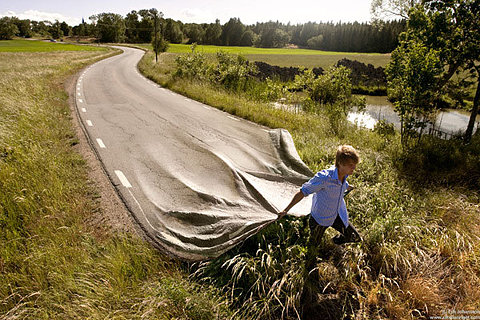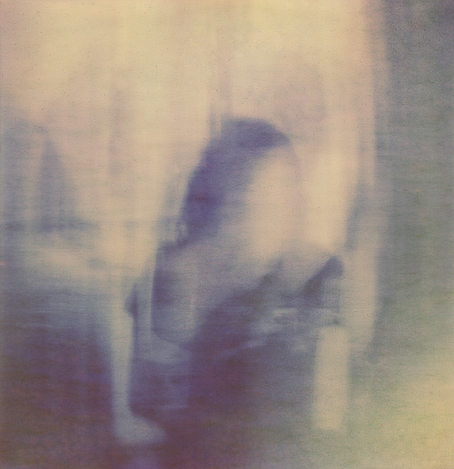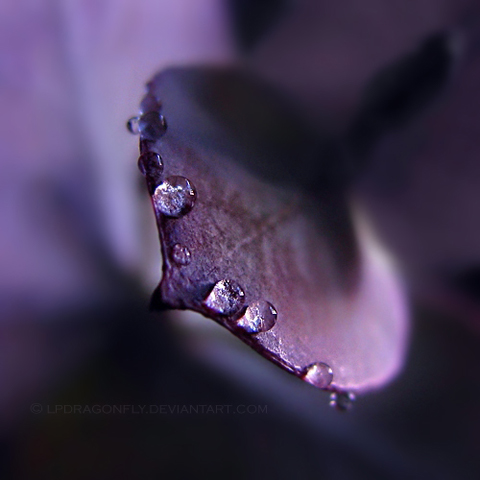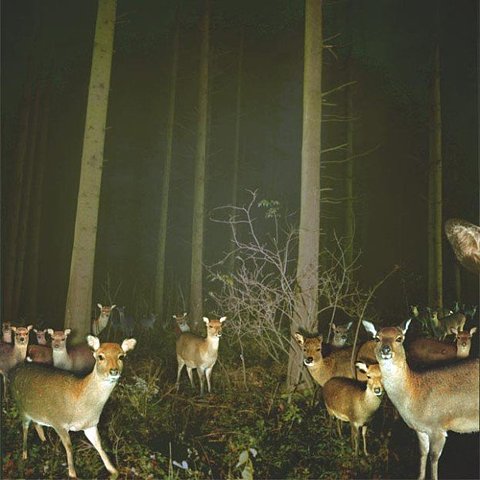My talk at Centre of Gravity, Toronto, January 15, 2012
Author
So we’ve started looking at this old Indian text from the 8th century called, in English, “A Guide to the Bodhisattva’s Way of Life.” When I pick up this book I try to reach back and imagine the writer living in that old place, across the globe. And this is the fantasy: that basically the writer has let me see two hands, two legs, two feet, check, check, check, basically, the writer, the dude is just like me. Only with less hair, and bad clothes. Doesn’t wash much, I’m not going to comment on his dental work. But actually the act of writing, when the writing runs deep, when writing has roots, when the writing calls out from the roots of your experience, there is not one conversation you’ve ever had, that isn’t also in your writing. There’s not one person who ever touched you, that isn’t in your roots, the roots of your writing. So when I think back again on the primal scene, the moment of this writing, I don’t think of a lonely genius Indian guy, Shantideva, I think of a whole scene. I think of the whole monastery and university, and every monk, and everyone who’s not a monk, and everyone who lives in the village who is giving food to the monks. The truth is: if the writing has roots, then the whole village is part of that writing. Every person in the village is standing inside the tip of that brush, is calling out from the tip of Shantideva’s tongue. And the person we name as the author is the conduit, the pipeline, the vessel through which all the energy of the village can flow.
Every author is a crowd scene. Who is the author of this place, this room? I’ve only been in this room once before, but I might as well have been born in this room. Maybe you’re being born in this room right now. I used to think that rooms like this were made out of wood, and beams, and tiles and glass. And that might be true enough, but this room, this room, in this moment, is made of you, and you. If one person left this room, if one more person entered this room, it would be different. It would make you different, it would make me different. And this difference is something you can feel. It’s not an idea, it’s not an abstraction, it’s a sensation in the body. Do you remember how the room felt today, when you walked into it? When you changed this room by stepping into it. When you changed me, when we changed each other, because you walked into this room.
The Room
Sometimes I’m afraid to walk into a room, because I don’t want it to touch me. Oh I’m sorry, I’d like to come but I’m too busy.
We are this room. This moment. Which is the only moment we can practice in. Patanjali’s Yoga Sutra puts it this way: Atha yoga anushasanam. The first line, the first words are about Now. Now is the practice of yoga. In this moment, this room, this practice.
Could you feel in the break how people entered the room, and that beautiful rustling sound, the hush of preparation, oh what a satisfying sound. And these greetings, oh it’s you, this recognition, these small explosions of recognition. Whenever I walk into a room, that I’m also part of, the room that is also me, I get a taste in my mouth. Do you get that? Right at the root of the tongue there’s a taste. Sometimes it’s fear. Bitter taste. Oh god, there’s so many people here. I hope I won’t have to talk to anyone tonight, where’s my protective armour of a cushion? And sometimes there is anticipation, like you’re ready to sit in front of a big fat dharma dinner, mmmm, what’s for dinner tonight? And sometimes there’s this sweetness, oh you’re here, and all of that maybe we could think of, as the writing of the room. Not just the sweetness, and the anticipation, but also the fear, and the misunderstanding, and the disappointment, why isn’t Michael talking tonight – all of that, and more than all of that, is the taste of the room. The taste of this moment. And you can hold the whole room in the back of the tongue.
Translation
How do we move from this room to that other room in India, so far away, in the 8th century? Perhaps we do it through an act of translation. I’m reading Stephen Batchelor’s version and Stephen was asked, as some of you might know, by the Dalai Lama to translate this text. This has been a really important book for the Dalai Lama. So Stephen goes back to the original Sanskrit, but also to an important Tibetan commentary made in the twelfth century which is explained by Stephen’s teacher in the twentieth century. So you can see that there are these layers, these webs, these conversations happening, across centuries, voices are calling out across time, to produce a book written in English. The word translation is so interesting, Mathew Remski goes into this in his stunning remix of the Yoga Sutra. The word translation has Latin roots, trans means to cross over or beyond. What does it mean to be a trans man or a trans woman? To cross over or beyond gender. And what about these words trans-formation. Trans-fer. Trans-cendence. And Latus means to bear. To bear up, to bear the weight. In other words, to hold space for. When we translate we are crossing over, in this instance we are crossing over centuries, and we are holding space for the difference between this room, and every room in the village of Shantideva.
Isn’t this what we do together in conversation, when we can really listen to one another? Aren’t we holding space, holding a feeling that is coming through underwater, as you speak there is a vast underwater life of feelings, and if you can let them enter you, they change you. We are changing each other when we speak, if we can open that far, can you open that far? And because of our filters, our layers of old habit patterns and new habit patterns, we receive these words, we hold them in a particular way, and then we transform them, in other words: we translate the words that are being spoken to us, so that they become my words. Your language becomes my language becomes our language.
I’m opening to you so that you can change me. I’m holding a space for you even though I don’t know what you’re going to say, and perhaps I can hear it without having to decide if what you’re telling me is right or wrong, good or bad, I can just hold space for it, and let it change me. Aren’t we all translations of one another, somehow? And isn’t that what this room really is, it’s a frame, a container, for a particular series of continuous ongoing translations. Or is it, instead, a place where we can stay stuck in our place. No, I won’t. I won’t open, I’m just here to assert myself. To tell you what I am over and over again.
Walking
Over New Year’s there was this little silent meditation retreat that a few people in this room attended – secretly only so that we could eat the incredible food of Cassandra and Julie – but in what I came to think of as the intermissions, by which I mean the moments when we weren’t stuffing our mouths with heavenly food, sometimes we did walking meditation. And there were two kinds of walking: slow walking and fast walking. And one of the things I really loved about for instance fast walking was that I wasn’t walking the way I walk. You keep up with the group, sometimes faster, sometimes slower, and in this way I was relieved of this small and tiresome thing I like to actually spend all day doing, and then all night I replay it in my dreams. What I like to do mostly, most of the time, is that I make choices. I’m exercising my preferences. I like this. I don’t like that. I don’t like your hands. Sorry it’s one of those things. I love those sneakers. I don’t like this room, it’s not as spacious and beautiful as the other room, the good room, the room that I’m used to. I like the altar, I don’t like the cupboards.
When we were fast walking, it didn’t matter what I liked or what I didn’t like. That was the first thing. The second thing is that, strangely or not, each fast walk was completely different. For instance there’s the I’m a serious Zen Master, don’t mess with me, this is very serious business, nothing could be more serious than my inhale, my exhale. And then there’s what I thought of as the saucy tart walk, I’m so fine and high assed and perky and perfect, nothing will ever touch me again. And then there’s the broken march of sad refugees walk, oh my back is so sore, oh my knee, do I still have knees left? Why did I sign up for this? This is not a happy new year. And this is what the room feels like, it changes as we change, and I think the hope, the point of practice is not to be walking with a stunned smile on your face: I love everybody and every snow flake, but sometimes you’re a serious Zen master, and sometimes you’re a saucy tart. You’re flowing with the room. Dogen puts it this way: The Way is never separate from where we are now. In other words where we are, if we can be where we are, if we can be here, in this room, if we can be all here, then we’re with the Way. The Way, according to Dogen, the path, the next step, the point of practice for instance, the Way is created by the We. When we come together, we make the way. And this is a radical idea, even in this tradition, which sometimes emphasizes you know strict monastic forms, and being alone and sitting in silence. But Dogen says that the way arrives when we are in relationship, when we’re truly interfaced, then we are the way.
The whole village wrote this book. The whole village is writing, because the whole village is the way.
In the language of this translation, this Guide to the Bodhisattva’s Way of Life, they have different names for the Way. They call it: the awakening mind. How do you have an awakening mind? Maybe you find the place of the We. Where We are, when you can hold space without creating preferences, for what I’m saying, for what you’re saying, when we can open far enough, long enough, to allow someone to touch us, to change us, when we’re all the way in the room, then the way is here, the awakening mind is here.
Last week we had a look at chapter one. It talks about bodhicitta, which means awakening to one’s Buddha nature. Seeing how we are all part of each other, seeing how we are all part of the room. And bodhicitta has these two parts: intention and action. I’m going to do it. I’m doing it!
This week let’s open up chapter two. What is the village, the street sweepers, the window cleaners, the householders and pot makers and boddhisattvas talking about in chapter two?
In order to seize that precious mind (this is the awakening mind or we could also call it The Way, or beginner’s mind)
In order to seize that precious mind
I offer now to the Tathagatas (to the Buddhas – that’s you by the way, the Buddhas)
To the sacred Dharma , the stainless jewel
And to the Disciples of Buddha, the Oceans of Excellence,
and here we go with the list, as you know, if you’re read any sacred even not so sacred Indian literature they like lists, so here we go with a list of what you are going to offer for your awakening mind. Can we start the bidding at one lifetime?
Whatever flowers and fruits there are,
And whatever kinds of medicine,
Whatever jewels exist in this world
And whatever clean, refreshing waters;
Likewise gem-encrusted mountains,
Forest groves, quiet and joyful places,
Heavenly trees bedecked with flowers
And trees with fruit-laden branches;
Fragrances of the celestial realms,
Incense, wishing trees and jewel trees,
Uncultivated harvests, and all ornaments
That are worthy of being offered;
Lakes and pools adorned with lotuses,
And the beautiful cry of wild geese,
Everything unowned
Within the limitless spheres of space.
Everything unowned. Isn’t that beautiful? I think the writer is saying that what she is wanting to give for the awakening mind is everything, I’m going to give everything in this room. In the room of my life. How do I give everything in this room? And she’s also making this point that the most precious and most important things in my life, are the things I don’t own. You can’t own language, or kindness, or love.
If you’re Chief Theresa Spence, and your people are homeless, and there’s bad deals made with the diamond company, and the federal government is deciding what to do with the land that belongs to you without consulting you, if the federal government is starving your land and your people, what else can you do but go to Ottawa and sit in a teepee and go on a hunger strike. I think this is the bodhisattva’s way of life. How do I walk into a room? How do I realize awakening mind? I sit in a teepee and I don’t eat.
The remainder of chapter two has something to do with a trip, and the trip is: how do I walk into this room? How do I step back into this moment, this moment of practice. How can I surrender all of my old likes and dislikes, my cherished preferences? And one of the qualities that is returned to again and again, as if there is a door in front of the door to this room, as if there’s a door that’s so wide and so high that you can’t even see the entrance door to this room. And that door that’s so wide and tall and thick is a door made of fear. The whole village is writing, and the whole village is writing about fear. And the hope, I think, is not to destroy that fear, or to attack that fear, but to hold that fear, we’re going to make a warm place, we’re going to make a nest so that we can hold our fear, and then we’re going to take the next step. Maybe that’s the whole of the practice. How do I take the next step, the next breath?
There’s an American poet who writes about this matter, better than anyone I know. Her name is Sharon Olds, an American poet born in San Francisco in 1942. While the millions were dying all over the world. She is, to risk the oxymoron, a famous poet, one of the great poets of our time. She teaches writing at New York University. In 2005, then First Lady Laura Bush invited Olds to the National Book Festival in Washington, Olds declined the invitation in an open letter that finished this way: “So many Americans who had felt pride in our country now feel anguish and shame, for the current regime of blood, wounds and fire. I thought of the clean linens at your table, the shining knives and the flames of the candles, and I could not stomach it”.
A Week Later (The Atlantic Monthly July/August 2002)
A week later, I said to a friend: I don’t
think I could ever write about it.
Maybe in a year I could write something.
There is something in me maybe someday
to be written; now it is folded, and folded,
and folded, like a note in school. And in my dream
someone was playing jacks, and in the air there was a
huge, thrown, tilted jack
on fire. And when I woke up, I found myself
counting the days since I had last seen
my husband-only two years, and some weeks,
and hours. We had signed the papers and come down to the
ground floor of the Chrysler Building,
the intact beauty of its lobby around us
like a king’s tomb, on the ceiling the little
painted plane, in the mural, flying. And it
entered my strictured heart, this morning,
slightly, shyly as if warily,
untamed, a greater sense of the sweetness
and plenty of his ongoing life,
unknown to me, unseen by me,
unheard, untouched-but known, seen,
heard, touched. And it came to me,
for moments at a time, moment after moment,
to be glad for him that he is with the one
he feels was meant for him. And I thought of my
mother, minutes from her death, eighty-five
years from her birth, the almost warbler
bones of her shoulder under my hand, the
eggshell skull, as she lay in some peace
in the clean sheets, and I could tell her the best
of my poor, partial love, I could sing her
out with it, I saw the luck
and luxury of that hour.
One Secret Thing by Sharon Olds
One secret thing happened
at the end of my mother’s life, when I was
alone with her. I knew it should happen-
I knew someone was there, in there,
something less unlike my mother than
anything else on earth. And the jar
was there on the table, the space around it
pulled back from it, like the awestruck handmade
air around the crèche, and her open
mouth was parched. It was late. The lid
eased off. I watched my finger draw through
the jelly, its egg-sex essence, the four
corners of the room were not creatures, were not
the four winds of the earth, if I did not
do this, what was I – I rubbed the cowlick of
petrolatum on the skin around where the
final measures of what was almost not
breath swayed, and her throat made a guttural
creek bed sound, like pebbly relief. But each
lip was stuck by chap to its row
of teeth, stuck fast. And then I worked
for my motherhood, my humanhood, I
slid my forefinger slowly back and
forth, along the scab-line and underlying
canines and incisors, upper lip and then
lower lip, until, like a basted
seam, softly ripped, what had been
joined was asunder, I ran the salve in-
side the folds, along the gums,
common mercy. The secret was
how deeply I did not watch to touch
inside her, and how much the act
was an act of escape, my last chance
to free myself.
Sharon Olds: When Ms magazine accepted “One Secret Thing” for publication, I felt how our secrets, our private lonely moments, are not just ours, everyone has them, and we can share them.
How did Sharon Olds manage, there she is beside a mother who had turned into a child, who had turned into the one who always needs to be looked after. Her mother is lying on a bed, hardly herself, who am I if I can’t hold you, hold you with hatred, hold you with resentment, hold you with my anger, with my disappointment, who am I then? What am I left with? Can I go down into that place of the body where I say no and stay there, can I follow the end of every exhale and stay there and feel those unwanted feelings that she put inside me? Can I sit beside her, the woman who hardly looks like my mother anymore, and part her lips, that dry place, that endlessly dry place of her lips? Can you put your fingers inside her because – how does she put it? – because it’s the last thing, the last chance you have of being human, of being whole, of healing yourself. When Sharon Olds lifts her hand towards her mother and lays that glycerine onto her mother’s lips I believe she is raising her arm from the mula bandha, from that place in her body where she had said no to her mother all her life, from that place where her mother had said no to her, had refused her, all her life, she is lifting her arm from the roots of her own refusal, raising that no until it flowers in the heart. She is coating the dry place, the dry place of her own heart, because this is the realization that comes when you can say yes, yes to this moment, to this moment, to this moment right here. When you open to the moment as it is, not the way you want it to be, but this moment as it is, you are feeling this moment from the mula bandha, and then you can see that there’s no difference between you and your mother. You’re the same, you share the same dry heart, and by putting your glycerined hand on her lips, you are putting it on your own lips. By massaging it into her gums, you are massaging your own gums, you’re healing her, you’re serving, this is what happens again and again when you say yes to this moment, it makes you want to serve, to help others, and by helping others, you find interdependence, what Thich Naht Hahn called interbeing. Your heart is my heart, your lips are my lips, and at the same time we’re separate and singular and unique. At the same time. Independent and separate. And this one and this one and all of you.







